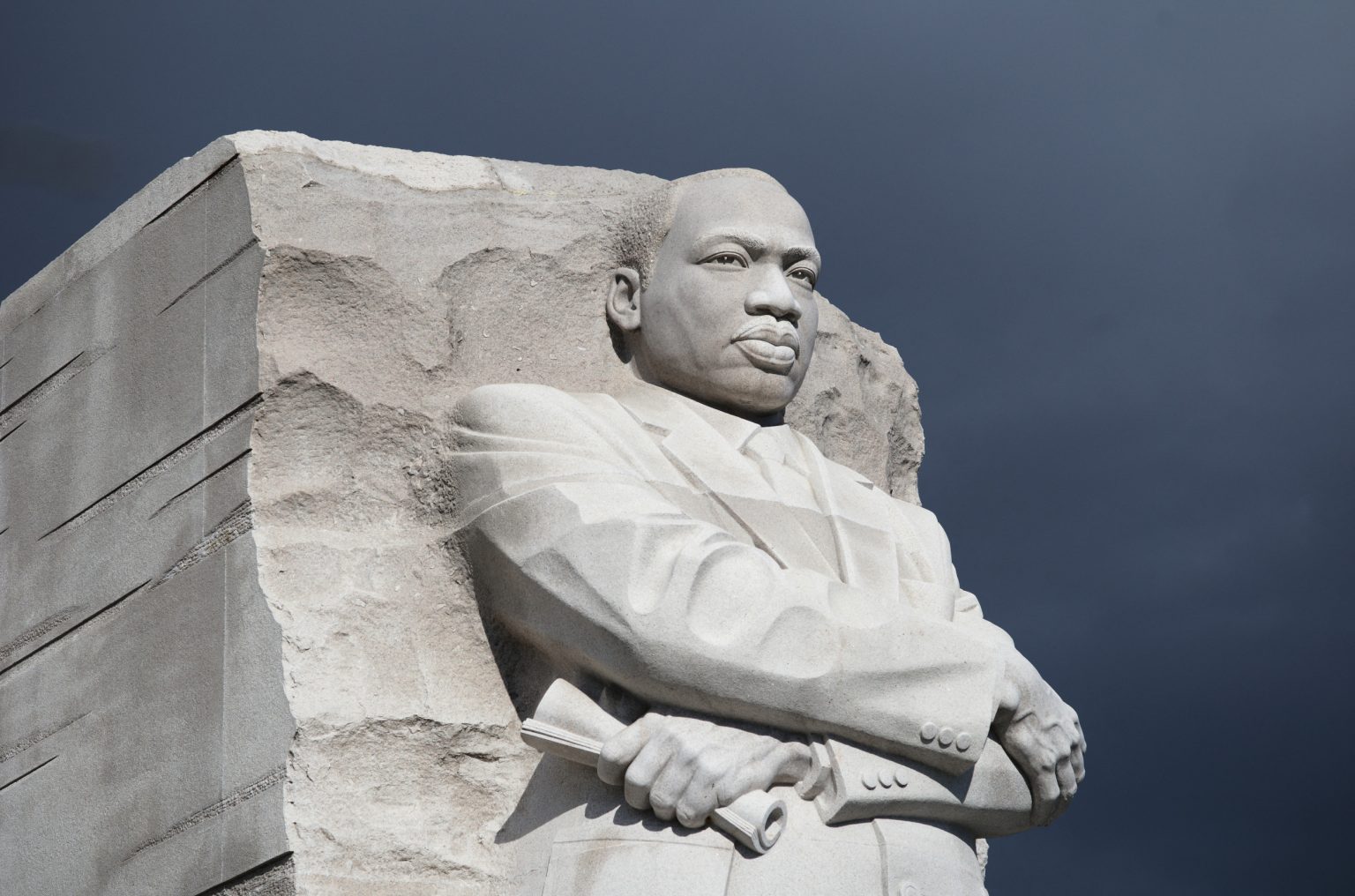Summarize this content to 2000 words in 6 paragraphs Every year around this time, I find myself reflecting on my father’s dream for our country—a profound vision for justice, freedom, unity, and peace. Today, the state of his dream seems more fragile than ever.This year, on Jan. 20, as we honor and participate in the Martin Luther King Jr. Day of Service, it is also inauguration day in the United States. In this moment of political transition, it’s easy to feel overwhelmed by the deep divides that plague our nation. But my dad’s message of hope, patience, and perseverance resonates now more than ever: “We must accept finite disappointment but never lose infinite hope.”No matter our political beliefs, I believe that all Americans want to create the Beloved Community, the basis of my father’s dream—a society united and rooted in justice, nonviolence, and equal opportunity for all. We have a choice: we can either succumb to the fear and division that pervades our political discourse or to paraphrase my father, we can choose community over chaos. I urge everyone to answer the call of my parents, Dr. Martin Luther King Jr., and Coretta Scott King, and unite in service to our communities.
The “Stone of Hope” sculpture is seen at the Martin Luther King, Jr. Memorial in Washington, DC, on Jan. 14, 2024.
The “Stone of Hope” sculpture is seen at the Martin Luther King, Jr. Memorial in Washington, DC, on Jan. 14, 2024.
MANDEL NGAN/AFP via Getty Images
This day calls on us to live out my father’s vision of service—whether through community engagement, educational, or social initiatives. It is a reminder that our individual actions, when taken together, can lead to transformative change. Now more than ever, as we reflect on where we are as a nation, we must ask ourselves: How will we live out Dr. King’s dream in our own communities? How do we all hope to live up to his legacy?As I ponder the life mission of my parents, it is my mother’s enduring legacy that dominates my mind—it teaches me that real change takes time, commitment, and each and every one of us. My mother worked tirelessly for decades to establish my father’s birthday as a national holiday. From educational campaigns to lobbying efforts that unified Democrats, Republicans, and the nation, she worked relentlessly to ensure my father’s legacy would be honored in a way that reflected his profound contributions to our nation. She believed in the importance of service on MLK Day as the best way to advance my father’s legacy and continue his work toward creating a more just and compassionate society.In those moments when I realize that there is still so much to be done, I’m drawn to my mother’s reminder that “freedom is never really won.” While our country faces ongoing challenges, we can find inspiration in the enduring legacies of my parents, who remind us that the work of justice must carry on through generations. We must be willing to continue their fight—do what is right, stand up for justice, and carry forward the ideals of love, compassion, and equity.
This year, more than ever, I’m resolute about my father’s business: the business of building a beloved community through service. I reflect on my own legacy in a book I co-authored called “What Is My Legacy?” In it, I reach the conclusion that legacy is not defined by your last name, your bank account, or your possessions; legacy is defined by your actions each day, and it is built by commitment to serving your community.As the devastating fires burn in Los Angeles, we are witnessing the best of humanity—neighbors coming together to help one another. This spirit of solidarity is essential for overcoming challenges. The King legacy is not limited to those who share his name; it belongs to all who aspire to achieve peace, justice, and equity. My father once said, “Everybody can be great because everybody can serve.”As we observe Martin Luther King Jr. Day this year, let us renew our commitment to creating a better world through community service by committing to add your volunteer service hours to our 100 million hour goal to Realize the Dream.Whether through food drives, supporting local community initiatives, or working to dismantle systems of injustice, we can continue to bring my father’s vision to life. For me, that is the meaning of legacy—living with a purpose that is greater than your own self-interest. Our legacy is something that each of us can choose to build each day—it is the impact that we make on our communities using our unique talents, passions, and resources.Today, we must deepen our resolve to make a difference in the lives of those around us. Together, we can build a future that reflects Dr. King’s dream of a Beloved Community, one grounded in justice, compassion, and shared responsibility. A legacy that embodies his commitment to nonviolent protest, service to others, and the belief that love and justice will ultimately triumph over hate and division. This is the legacy I have chosen, and it is the legacy each of us must strive to live every day.Martin Luther King, III, is a global humanitarian, activist, and the eldest son of Dr. Martin Luther King, Jr. He is Chairman of the Board of the Drum Major Institute, the author of “What is My Legacy?” and cohost of the My Legacy podcast alongside his wife, Arndrea Waters King, and Craig and Marc Kielburger.The views expressed in this article are the writer’s own.







